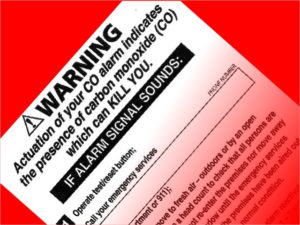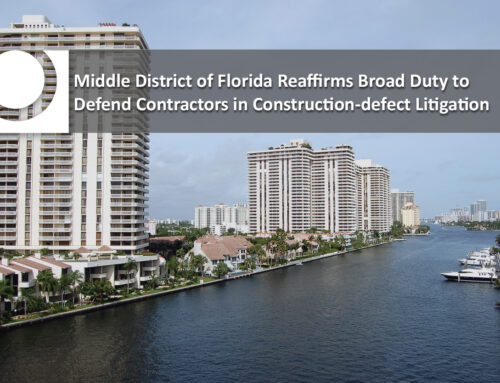As I wrote in an earlier blog post (see my August 10, 2015 article here), insurers have a duty to defend their policyholders against any potentially covered loss, which means that insurers are required to defend and attempt to settle claims on behalf of their policyholders even when coverage for the underlying claim is uncertain or doubtful. But as a recent case from the Washington Court of Appeals illustrates, insurers may not be off the hook even if the duty to defend does not apply. Washington, like a number of other states, has enacted consumer-protection statutes that can provide powerful remedies to policyholders whose insurers failed to properly investigate claims before denial.
On August 24 2015, Division 1 of the Washington Court of Appeals issued a decision that is certain to make insurers tremble. In Xia v. ProBuilders Specialty Insurance, the court upheld a summary-judgment order holding that the insurer did not breach its duty to defend, but nonetheless left open the possibility that the insured could recover damages under Washington’s Insurance Fair Conduct Act (“IFCA”) and/or the state’s Consumer Protection Act (“CPA”).
The underlying dispute in Xia was a personal-injury claim for carbon-monoxide poisoning that occurred as a result of an inadequately vented hot-water heater in a newly constructed home. The plaintiff, Zhaoyun Xia, settled with the homebuilder for a $2 million judgment, which included an agreement not to execute on the judgment and an assignment of the homebuilder’s rights against its insurer, ProBuilders. ProBuilders denied the claim due to, among other things, the insurance policy’s “pollution exclusion.”
 After ProBuilders denied her claim, Xia sued for breach of the insurance contract, bad faith, and for violations of the CPA and IFCA. The trial court granted summary judgment in ProBuilders’ favor, holding that the allegations in Xia’s complaint fell squarely within the insurance policy’s pollution exclusion, and that the insurer had no duty to defend or indemnify. The trial court also dismissed Xia’s bad faith, CPA, and IFCA claims.
After ProBuilders denied her claim, Xia sued for breach of the insurance contract, bad faith, and for violations of the CPA and IFCA. The trial court granted summary judgment in ProBuilders’ favor, holding that the allegations in Xia’s complaint fell squarely within the insurance policy’s pollution exclusion, and that the insurer had no duty to defend or indemnify. The trial court also dismissed Xia’s bad faith, CPA, and IFCA claims.
The Washington Court of Appeals affirmed the trial court’s decision granting summary judgment in favor of the insurer on the breach of insurance contract and bad faith claims, but reversed the trial court’s summary dismissal of Xia’s CPA and IFCA claims. The Court of Appeals held that the CPA and IFCA, and associated Washington insurance regulations, require insurers to conduct a “reasonable investigation” before denying a claim, and that failure to do so constitutes an “unfair or deceptive act by the insurer.” Scrutinizing the trial-court record, the Court of Appeals found enough evidence to create a triable issue of fact for the jury on Ms. Xia’s statutory claims and remanded that portion of the case for trial.
This case illustrates how important it is for policyholders to consult with experienced coverage counsel early in the claims process. Even in cases where an exclusion or other limitation on coverage appears to apply, hope is not necessarily lost. Coverage counsel may be able to identify errors or omissions in the insurer’s investigation or processing of the claim, which run afoul of policyholder-friendly consumer protection statutes with very strong remedies. The Washington IFCA, by way of example, provides for up to treble damages, plus attorney fees and litigation costs. The Washington IFCA, and its counterparts in other jurisdictions, gives insurers a strong incentive to think very carefully before denying claims, even when the insurers might otherwise have a strong basis to deny coverage.



